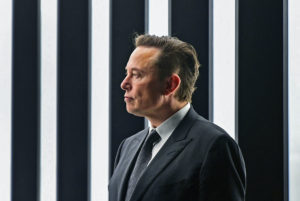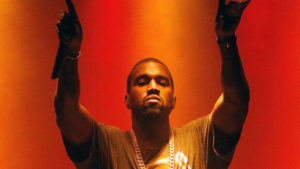If there is anything more dull than listening to acquaintances relating their dreams, it can only be reading journalists complaining about Twitter. Yet since Elon Musk spent $44 billion on becoming its main character, the topic has become inescapable. As Ernst Jünger remarked in The Glass Bees, his prophetic 1957 novella about a tech billionaire, “economic absurdities are produced only when power is at stake”. The furore — online of course — about Twitter’s future direction is entirely downstream of the perception that its ownership is a valuable prize to be wrestled over, the world-island of political discourse whose mastery brings with it absolute power.
Such a widely-held belief, put forward by Musk’s opponents and fans alike, illuminates the nature of the platform. It has become the precise opposite of its original stated intention, as a decentralised platform for the instantaneous dissemination of information. Instead, Twitter is a centralised platform for the creation and enforcement of ideological narratives. The fear of liberals, and the hope of some conservatives, is that under Musk’s ownership Twitter will cease to be a central pillar of “the Cathedral”, the ideological apparatus by which the liberal order maintains its hold on effective power despite the growing opposition of voting publics.
For Right-wingers, who see Twitter functioning as a mechanism to enforce the dogmas of liberal ideology, the hope is to seize the Cathedral; Conservatives, by contrast, hope to open it up to debate, using Twitter as a pulpit through which the congregation will select the best ideology on rational grounds. Both beliefs are based on a fundamental misapprehension of what Twitter is, and how it has achieved the cultural prominence it has. And both groups, as well as society as a whole, would be better served if the entire edifice was levelled to the ground.
Twitter’s rise to prominence was a product of a specific set of material circumstances, the unintended effect of the demolition of legacy media platforms by Facebook, which destroyed the advertising revenue on which their journalism depended. During the 2010s, media companies reoriented themselves towards “the pivot to video”, producing short-form audiovisual content designed to be shared on Facebook. When Facebook suddenly changed its algorithms to deboost such content, fortunes were lost and the rising stars of the new media landscape, like VICE and Buzzfeed, came close to collapse. The resulting jobless diaspora of online journalists swiftly congregated on one platform: Twitter.
Twitter is at heart nothing more or less than a tool by which commentators measure their social capital, a social credit system for insecure writers. The most dangerous creature on Twitter is, after all, the aspirant blue check, whose desperate clamour for attention drives so much of the platform’s pathologies. From the moment he wakes up until the moment he goes to sleep, the journalist’s day is bookended, and punctuated by the platform: he scrolls through Twitter on his journey into the office; then, sitting at his desk, the first thing he does is open his laptop to scan Twitter. Stories, interviewees, heroes and villains are all identified on Twitter. Often contractually obliged to promote their work on Twitter, it becomes reality to the journalist, especially the opinion columnist, whose requirement to produce copy frequently outruns their capacity to formulate considered opinions.
Likewise, the value of a news story is almost entirely based on whether or not people are discussing it on Twitter. Its baneful effects are visible everywhere: the precipitous decline of Channel 4 News as a platform for serious journalism began, in the mid-2010s, as it reoriented its focus towards producing shareable video content for Twitter, aiming particularly at middle-aged liberals outraged by Trump and Brexit, the demographic to which its editors belong. For the online BBC journalist, Twitter is used as a means to circumvent impartiality rules, using often the obscurest of Twitter accounts to voice sentiments they are banned from expressing themselves: when a BBC article tells you that something has “sparked online debate”, prepare for a lecture on the Twitter fixation of the day, in which the quoted account merely ventriloquises the barely-hidden political believes of the journalist sharing it.
All journalism is now a Twitter performance: the journalist writes primarily for Twitter, and not his readership, their published work functioning as an esoteric text demonstrating allegiance to an in-group and hostility to an out-group: the readership, and the company paying for it are mere spectators to the essential work of Twitter performance. It is for this reason that journalists have become so reviled: their role has become so oriented to the production of discourse rather than the description of reality that the gulf between them and their readers widens ever more: Twitter and journalism are both locked in a fatal embrace.
Because of its outsized role in the journalistic imagination, Twitter has come to consume politics, just as it has journalism. When the MP David Amess was murdered by a jihadist, the government turned it into a narrative about Twitter trolls: not only because it was easier for them to talk about — they would, horror of horrors, have been criticised on Twitter for talking about the actual problem — but because it is the only thing they care about. If they have tweeted their disapproval of something it is within their power to fix, like Conservative MPs moaning about the migrant crisis, politicians feel satisfied their work has been done: the point is no longer to change the world, only to create discourse about it.
Conservatives, who feel shut out of Twitter’s system of reward and approbation, have found themselves particularly entranced by the platform’s spell. They frequently declare that Twitter is not the real world, but the truth is worse, that the real world has become entirely suborned to Twitter. Similarly, it is easier for the police to demonstrate their political allegiances on Twitter than to prevent crimes; if every British Police force deleted its Twitter account, it would instantly be held in much higher regard by the public. But then no-one’s reputation is enhanced by Twitter: reading the thoughts of historians, barristers or public health professionals on the platform is a genuinely nihilistic experience. All have had their repute levelled by the platform which erodes every institution it touches.
As the media theorist Marshall McLuhan warned back in the Sixties, “the new electronic interdependence recreates the world in the image of a global village”. Anyone who has actually lived in a small, traditionally-structured village, and not merely fantasised about the premodern world on Twitter, will be aware of the claustrophobic intensity of such a state of being, the life monitored and circumscribed by village gossip and obscure feuds. As McLuhan remarked, “unless aware of this dynamic, we shall at once move into a phase of panic terrors, exactly befitting a small world of tribal drums, total interdependence, and superimposed co-existence”, forced on us by “the fact that everybody in the world has to live in the utmost proximity created by our electric involvement in one another’s lives”. The spasms of moral panic that pulse around the world from their origin in America’s neurotic taste-making class are a result of the world’s opinion-makers being locked together in the Twitter panopticon.
In viewing the Twitter blue check as a coveted badge of status, both Musk and his anxious critics are entirely mistaken. The best analysis tends to come from anonymous accounts, freed from the combination of fear and need for approbation which consumes the blue check: if Twitter were an entirely anonymous platform, it might be a better functioning clearing-house for information and informed commentary. Rather than the presence of bots being Twitter’s original sin, as Musk has claimed, its greatest flaw is that it has turned Twitter’s “power users” into effective bots themselves, their every utterance shaped by the need to navigate Twitter’s treacherous rocks and shallows.
Instead, the true mark of success as a commentator is freedom from needing to be on Twitter at all: who knows what Cormac McCarthy, say, thinks about Trump, or Black Lives Matter, or trans toilets? Whatever his opinion, he would sink in our estimation even if we agreed with him. This is why the Twitter presence, let alone addiction, of the super-rich is viewed with simultaneous bewilderment and disgust by the platform’s most committed users, toiling away in the take fields.. Why would anyone be here if they didn’t need to? How much weaker and more pathetic does Putin seem for the growing fixation on American culture war issues that manifests in his speeches? Rather than being outside the system of America’s cultural power, he has revealed himself as trapped here with the rest of us. Who can doubt that if a nuclear exchange began, we would find out on Twitter — the shared countdown, the snarky memes — or that many would spend their final minutes composing the perfect final tweet, the one last dunk on their enemies or expression of tribal allegiance?
If Musk, as is likely, destroys Twitter as it currently exists he will be doing the world a great service. By wrecking the current function it performs for commentators, he will free journalism and politics from its concentration in a single online madhouse, and in doing so, no doubt entirely unwittingly, help decentralise the spread of information. Like Legion in the New Testament, Twitter’s constellation of unhappy, clamouring souls must be driven off a cliff. When he learns, as he perhaps already has, that the platform will never be profitable, he should smash his new train set. The greatest power that will accrue to him, and the greatest gift he can offer civilisation, is not reforming Twitter through tweaks here and there but by loading its servers into a Space X rocket and firing them into the heart of the sun, forcing us all, finally, to log off.
Disclaimer
Some of the posts we share are controversial and we do not necessarily agree with them in the whole extend. Sometimes we agree with the content or part of it but we do not agree with the narration or language. Nevertheless we find them somehow interesting, valuable and/or informative or we share them, because we strongly believe in freedom of speech, free press and journalism. We strongly encourage you to have a critical approach to all the content, do your own research and analysis to build your own opinion.
We would be glad to have your feedback.
Source: UnHerd Read the original article here: https://unherd.com/





